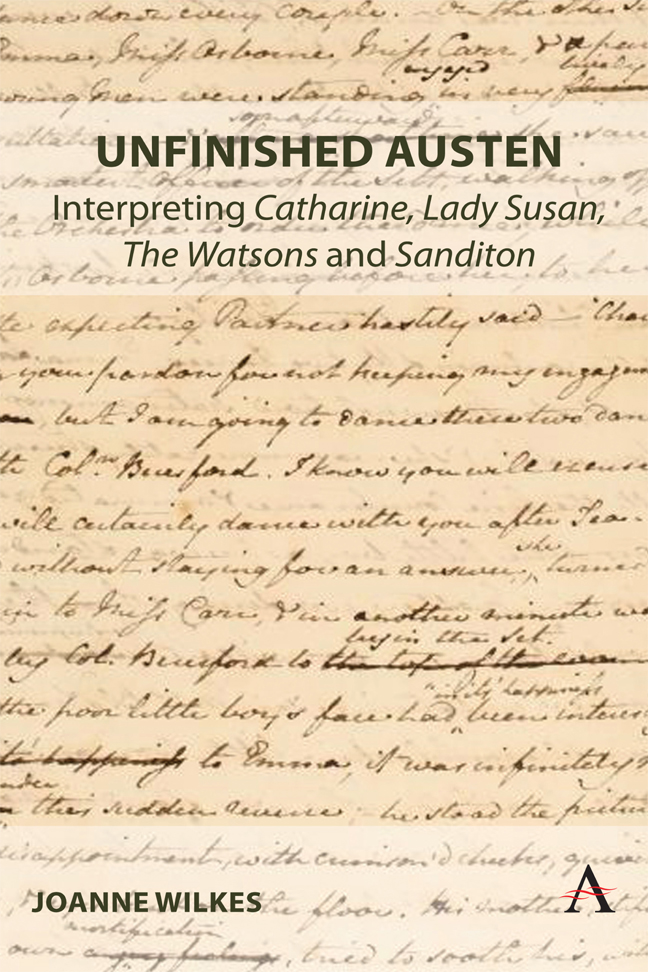 Unfinished Austen
Unfinished Austen 1 - Introduction
Published online by Cambridge University Press: 29 February 2024
Summary
Towards the end of her career, in 1816, Jane Austen produced a comic manuscript which she called ‘Plan of a Novel, according to hints from various quarters’. She noted in its margins the origins in her own circle for some of these ‘hints’, but another source was clearly the Rev. James Stanier Clarke, Librarian to the Prince Regent. In 1815, he had invited Austen to dedicate her forthcoming novel, Emma, to his master. Austen did this, unenthusiastically, but also found herself in a correspondence with Clarke about potential topics for another novel, one of which was obviously founded on Clarke's own view of his personality and career. Austen famously declined, affecting ignorance and incompetence, and declaring that she was ‘the most unlearned & uninformed Female who ever dared to be an Authoress’. She had been obliged to be polite, but she allowed herself some light relief in her ‘Plan of a Novel’.
What this late text does is to ridicule, pointedly and succinctly, some of the conventions of contemporary fiction: in particular, characters represented as implausibly virtuous or vicious, overblown sentiments, hectic and unconvincing plotting, and extended interpolated narratives. Hence the clergyman in the novel was to be ‘the most excellent Man that can be imagined, perfect in Character, Temper & Manners’, and his daughter, the heroine, would be ‘faultless’ and impossibly accomplished. The pair would always ‘converse in long speeches, elegant Language – and a tone of high, serious sentiment’ (228), and much of the novel's first volume would be occupied by the father's account of his life. Otherwise the plot would mostly consist of the daughter being pursued by suitors all over Europe, and constantly uprooted by one of these, a ‘totally unprincipled & heart-less young Man’ (227). There would be a hero, ‘all perfection of course’, and in general ‘the Good will be unexceptionable in every respect’, while the ‘Wicked […] will be completely depraved & infamous’ (227). After she has been ‘worn down to a Skeleton, & now & then starved to death’, the heroine and her father are forced to flee to Kamschatka, where he, ‘after 4 or 5 hours of tender advice and parental Admonition to his miserable Child, expires in a fine burst of Literary Enthusiasm’ (228). The heroine then faces ‘at least 20 narrow escapes’ from the villain, but eventually ‘runs into the arms of the Hero himself’ (229).
- Type
- Chapter
- Information
- Unfinished AustenInterpreting <i>Catharine</i>, <i>Lady Susan</i>, <i>The Watsons</i> and <i>Sanditon</i>, pp. 1 - 16Publisher: Anthem PressPrint publication year: 2023


